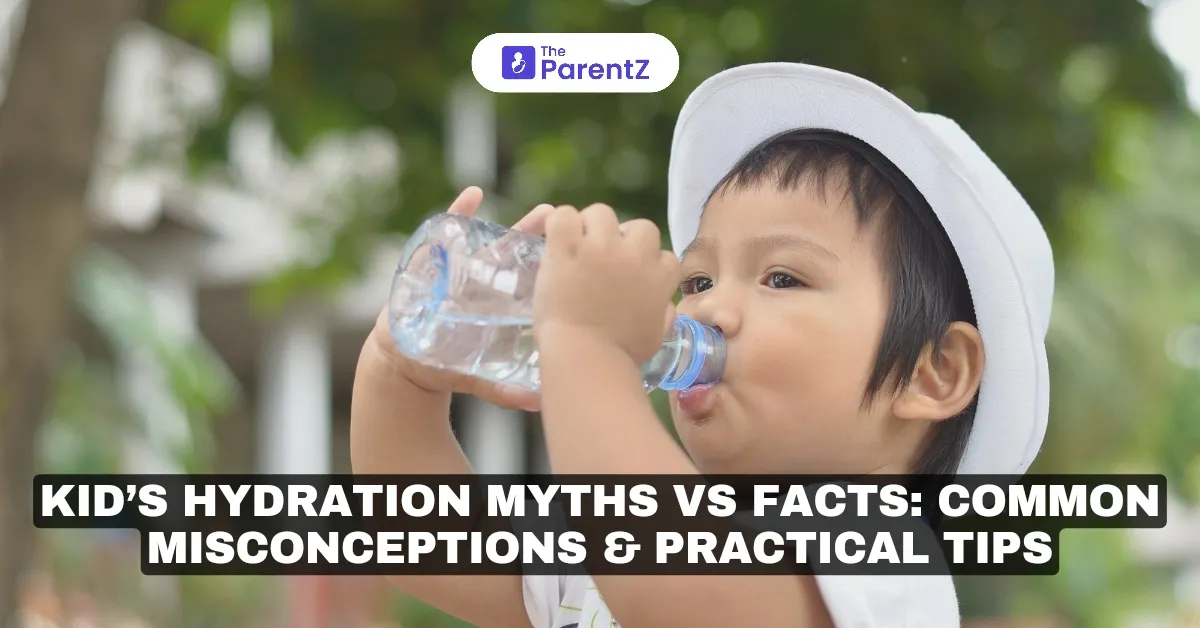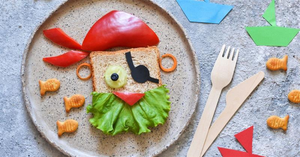Proper hydration is essential for a child’s growth, energy, and overall well-being, yet there are many misconceptions surrounding it. Believing these myths can lead to improper hydration practices, which may affect children’s health.
Myth 1: Kids Must Drink 8 Glasses of Water Every Day
Fact:
The commonly heard “8 glasses a day” rule is meant for adults, not children. Hydration needs in kids depend on age, weight, activity levels, and climate. Young children typically require 4–5 cups of fluids daily, while older children may need 7–10 cups. Remember, fluids from milk, soups, and fruits also count toward their daily intake. Hydration can solve a lot of health issues, /health-nutrition/the-importance-of-hydration-for-dental-health read our guide to know more.
Myth 2: Clear Urine Means Perfect Hydration
Fact:
While pale yellow urine indicates good hydration, completely clear urine isn’t always necessary. In rare cases, overhydration can lead to electrolyte imbalances. The goal should be consistent fluid intake throughout the day, rather than aiming for completely clear urine.
Myth 3: Water Is the Only Source of Hydration
Fact:
Although water is the best hydrating fluid, other sources such as milk, herbal teas, smoothies, and water-rich foods (e.g., cucumbers, watermelon) also contribute to hydration. Active kids involved in sports may sometimes need electrolyte-rich drinks, but for most children, water is sufficient.
Myth 4: Thirst Is the Best Indicator of Dehydration
Fact:
By the time a child feels thirsty, they may already be slightly dehydrated. Kids are often too engrossed in play to recognize or communicate thirst. Encourage regular water breaks, especially during playtime or in hot weather, to prevent dehydration before it starts.
Myth 5: Drinking Cold Water Causes Colds or Sore Throats
Fact:
There’s no scientific basis for the belief that cold water causes sore throats or colds. Infections, not the temperature of drinks, cause colds. Drinking cold water can actually help cool down kids during physical activities or hot weather.
Myth 6: Sugary Drinks Are a Good Hydration Option
Fact:
While sugary drinks like sodas and fruit juices provide fluids, they are not healthy hydration options. They contain high amounts of sugar, which can lead to energy crashes, weight gain, and dental problems. It’s best to offer water and milk as primary drinks and limit sugary beverages to occasional treats. Burst this myth by reading /health-nutrition/the-impact-of-soda-and-sugary-drinks-on-kids-teeth-a-comprehensive-guide
Myth 7: Sports Drinks Are Necessary for All Active Kids
Fact:
Sports drinks are designed for athletes engaged in prolonged, high-intensity activities. Most kids engaged in routine play or light physical activity do not need them. Water is sufficient for hydration unless the activity exceeds an hour or involves intense sweating.
Myth 8: Kids Need Less Water in Winter
Fact:
Even in winter, children lose fluids through breathing, sweating, and urination. The cold, dry air can increase fluid loss from the body. Ensure kids continue to drink water regularly, even when they don’t feel hot or thirsty.
Myth 9: Drinking Water During Meals Interferes with Digestion
Fact:
Drinking water during meals does not disrupt digestion. In fact, it can help in breaking down food and easing the digestive process. Allowing children to drink water with their meals can promote proper hydration and prevent constipation. Read /health-nutrition/gut-feelings-exploring-the-connection-between-your-microbiome-and-mental-health to know about gut health.
Myth 10: Kids Need Flavored Water to Drink More
Fact:
While flavored water can be a tempting option for picky drinkers, plain water remains the healthiest choice. If a child dislikes plain water, you can naturally flavor it by adding slices of fruits like lemon, orange, or cucumber. Avoid artificial flavorings and sweetened water products.
Tips to Keep Kids Hydrated
1. Always Keep Water Handy:
Encourage children to carry a water bottle to school, during play, or on outings. Easy access to water makes it more likely they’ll drink regularly.
2. Offer Water-Rich Foods:
Include fruits and vegetables with high water content in their meals. Watermelon, oranges, cucumbers, and strawberries are excellent options.
3. Be a Role Model:
Kids learn by example. Drink water regularly yourself, and they’re more likely to follow your lead.
4. Create Hydration Routines:
Encourage drinking water at specific times, such as after waking up, before meals, and during playtime. This helps develop consistent hydration habits.
5. Reward Good Habits:
Use small rewards, like praise or stickers, to motivate younger kids to drink water regularly.
Conclusion
Hydration is vital for children’s growth, energy, and health, but it’s easy to fall into the trap of common misconceptions. By understanding the facts and following practical tips, parents can ensure their kids stay properly hydrated. Focus on offering water regularly, incorporating water-rich foods, and debunking myths that may lead to unhealthy hydration practices.
Staying informed and proactive about hydration will help your kids thrive, no matter the season or activity level. Keep it simple, stay consistent, and make hydration a part of their daily routine.








Be the first one to comment on this story.